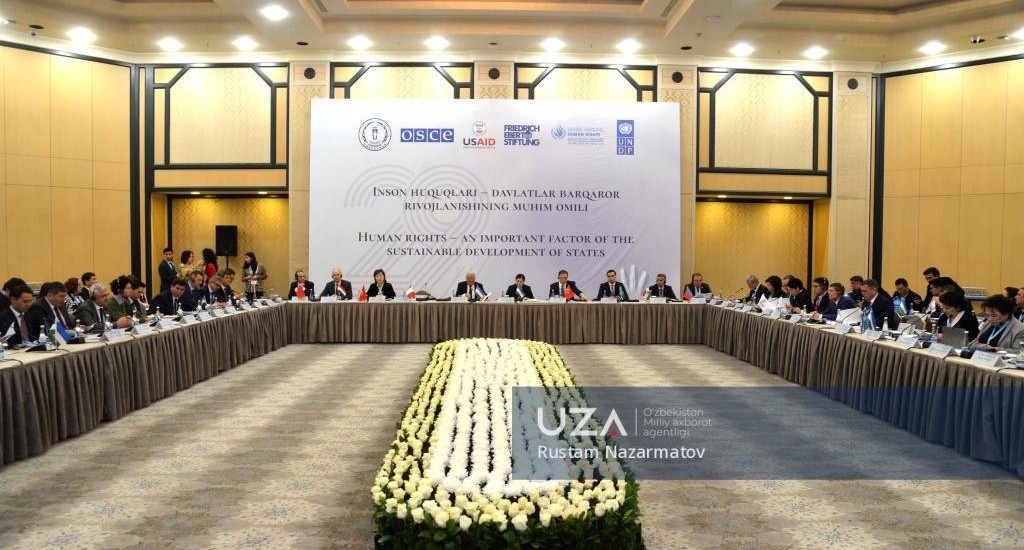- 26
- Feb
Human rights – an essential factor of sustainable development
Tashkent hosted an international conference on “Human rights – an important factor of the sustainable development of states”. The event was organized on the 29th anniversary of the institution of the Authorized Person of the Oliy Majlis of the Republic of Uzbekistan for Human Rights (Ombudsman).
The event was organized in cooperation with the UNDP Resident Representative in Uzbekistan, the OSCE Project Co-ordinator and the USAID mission in the country, the office of the UN High Commissioner for Human Rights and the Friedrich Ebert Foundation.
Ombudsman of Uzbekistan Feruza Eshmatova noted that Uzbekistan takes on high responsibility to current and future generations for building a humane democratic state, an open and fair society in which the highest value is a person, his life, freedom, honor, and dignity. These lines, enshrined in the preamble of the Constitution of the Republic of Uzbekistan, form the basis of the reforms being implemented in our country.
The event was attended by representatives of authorized bodies for the protection of human rights and freedoms from about 20 foreign countries, in particular, Australia, Azerbaijan, Hungary, Italy, Kazakhstan, Kyrgyzstan, Morocco, Mongolia, Norway, Pakistan, Russia, Serbia, Thailand, Türkiye, Tajikistan and Turkmenistan, as well as representatives of international associations. Views were exchanged on the importance of the Ombudsman institution and current issues of ensuring human rights.
Representatives of prestigious international organizations, in particular, members of specialized committees of the UN, the Council of Europe, the Office for Democratic Institutions and Human Rights, experts from the Venice Commission, the International Ombudsman Institute, the Asian Ombudsman Association, the Max Planck Institute in Germany, UPR Info, and the diplomatic corps discussed how norms related to the protection of human rights operate in international and national legal documents.
The international conference continued its work in the form of panel sessions. The participants discussed the cooperation of national human rights institutions with parliament and civil society in ensuring human rights, the relevance of protecting human rights in the context of digitalization, ensuring gender equality and the rights of people with disabilities within the framework of the Sustainable Development Goals, guarantees of ensuring conditions that meet labor protection requirements, relations.
At the event, ombudsmen from Türkiye, Serbia, Hungary, Mongolia, Italy, Azerbaijan, Russia, Thailand, Morocco, Kazakhstan, Tajikistan, Kyrgyzstan, and Turkmenistan also shared their experiences. The Ombudsman of Uzbekistan signed memorandums of cooperation with the Ombudsmen of Italy and Mongolia.
Following the event, the Tashkent Resolution was adopted.
Norgul Abduraimova, UzA
